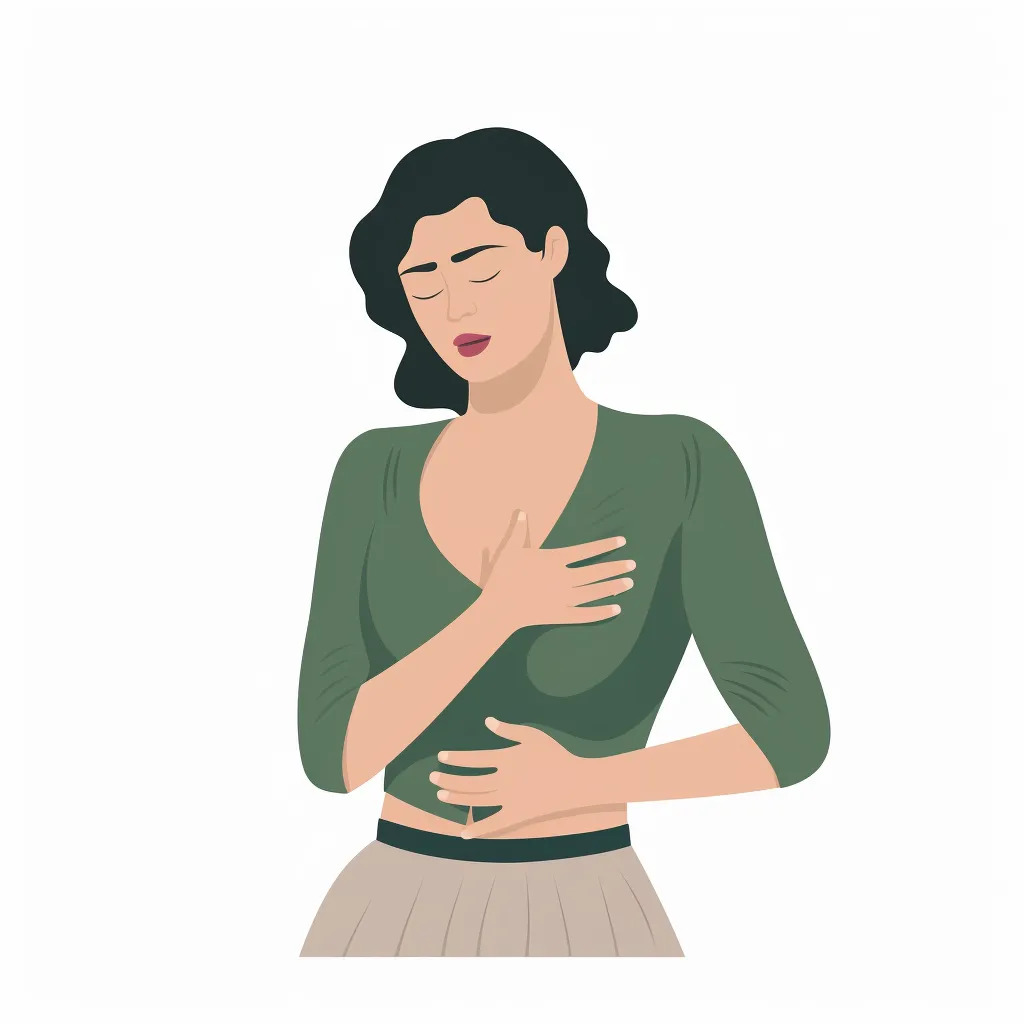
Body + Mind is reader-supported. We may earn an affiliate commission when you buy through some of the links on our site.
When Aunt Flo flies in for her monthly visit, you expect certain symptoms. Some women experience bloating, while others suffer severe cramps. Unfortunately, it’s not uncommon for women to get chest pains.
If you experience chest pain during periods, no doubt you want to know why. You also want to know how to ease your suffering. Here’s what you need to know about chest pains and how to relieve your agony.
Multiple factors can lead to chest pain during periods, so it’s essential to remain calm and not panic if you experience it. You shouldn’t ignore chest pain. In the U.S., heart disease remains the number one killer of women. Since women tend to downplay symptoms, they often go misdiagnosed. Plus, women tend to manifest heart attack symptoms differently than men do.
Experiencing chest pain doesn’t necessarily mean you’re having a heart attack. Some women experience extremely sore breasts with their menstrual periods. Others endure panic attacks due to fluctuations in hormonal levels. Finally, rib or back injuries can result in chest pain.
Some women experience digestive upset with menstruation. For example, if you suffer from acid reflux, hormonal changes during menstruation can increase symptoms. Many sufferers report chest pain as a common symptom, as the disease allows stomach acid to burn the esophagus — the tube leading from your mouth to your tummy.
Declines in hormonal level as you reach perimenopause and menopause can increase chest pain, too. Research shows a relationship between angina and decreased estrogen levels, something that occurs as a woman changes. You can find relief with hormone-replacement therapy if you suffer from this type of chest pain, but it requires monitoring by a physician.
Once you rule out any underlying heart disease, you probably want to know how you can alleviate chest pain during periods. Embrace lifestyle changes that make you healthier. By modifying your diet and exercise program, as well as taking certain supplements and herbs, you can find relief.
Try adopting mindfulness meditation or yoga to break through pain and the build-up of stress. Yoga brings relief by stretching out muscles surrounding the chest and back. Practicing Urdhva Mukha Svanasana or the upward-facing dog pose to open the muscles of your chest. Twisting supine poses help as well — don’t worry if you crack a little bit.
If you suffer from muscle spasms, try massage or heat therapy. For example, if you’ve suffered a rib injury, pectoral and intercostal muscle spasms can cause chest pain. Massage that focuses on myofascial release helps relieve spasms, as does a hot water bottle. If you can’t afford a trip to the spa, try a hot bath.
Exercise naturally relieves nearly all types of menstrual-related pain. Aim for at least 150 minutes of exercise weekly or 30 minutes each day of the week. Stop if your chest discomfort increases with exercise and seek medical attention — this could indicate a cardiovascular problem.
If you suffer from acid reflux, try using over-the-counter antacids containing calcium. This mineral benefits your bone health while cooling the burn. You can also modify your diet to calm acid. For example, a plant-based meal may bring significant relief. If dietary changes and over-the-counter medications fail to help, talk to your physician about prescription medications.
Investigate herbal treatments. For example, if you’re in perimenopause, the years preceding menopause, black cohosh can ease symptoms if you’re not trying to conceive. Ginger acts as a blood tonic, and turmeric is a natural anti-inflammatory that can calm pain stemming from chest injuries.
If you experience chest pain during your period for the first time, go to the emergency room. Even if doctors determine you don’t have cardiovascular disease, you will at least rule out the possibility. If you do have an underlying problem, prompt treatment will improve your outcome.
Your ER doctor will likely order an electrocardiogram (ECG or EKG) to rule out a heart attack. This test consists of sensors placed on your skin. They may perform a D-Dimer test to rule out a blood clot, or a CAT scan to check your lungs. The contrast dye can make you feel a little icky — like you have to pee — but the sensation passes quickly.
If your tests prove concerning, your physician may refer you to a cardiologist for further evaluation. They’ll only hospitalize you if you’re at risk of imminent harm. Either way, maintaining a healthy weight and quitting smoking reduces your risk of future cardiovascular events.
Chest pains during periods feel scary, but in many cases, they don’t mean you suffer from heart problems. By seeking early care and making positive lifestyle changes, you can improve your health and relieve pain.